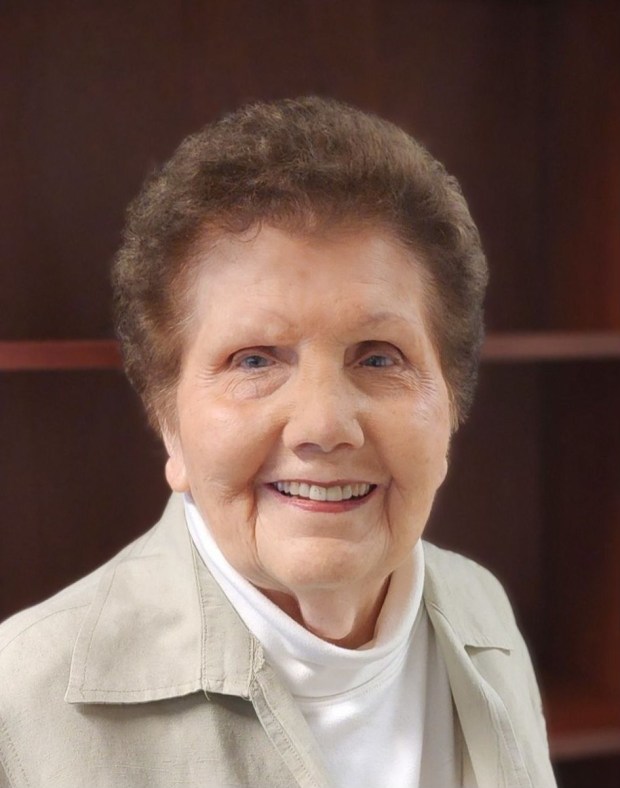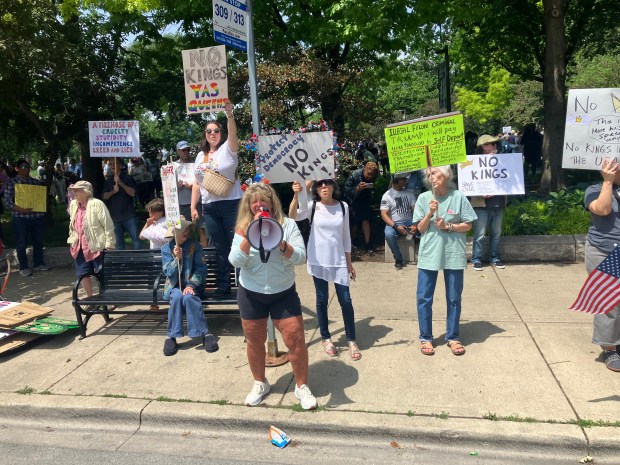Porter County voters have a field of six candidates to choose from for the three Porter County Council At-Large seats, three incumbents and three challengers. Voters must vote for at-large candidates individually even if they choose straight-party voting for other offices.
Incumbent Sylvia Graham, a Democrat, is running for her fifth term and is particularly concerned about the county’s roads and how to finance their upkeep, as well as county government fostering cooperation and communication among its members.
She wasn’t totally happy with the need to bump up the percentage of interest drawn from the sale of the county hospital but said the increase from 3.5 to 5% was justifiable to give county employees a raise.
“I think that they deserve at a minimum a cost of living increase in wage,” she said. She would even be comfortable drawing on the principal, but not until the current balance of $197 million reaches $220 million and then only pulling out $20 million and allowing it to regenerate. “That’s what makes our taxes low,” she said of the foundation money. “Our county is a wealthy county and that’s what lets us borrow at a low rate.”
She anticipates it would take two to three years for the balance to get to $220 million, giving the county time to make a spending plan, which would be up to the commissioners and the public. “That’s the people’s money and they should be part of the decision-making too.”
Graham favors a referendum to determine how voters feel about implementing a public safety tax (PST) and hounding those at the Statehouse on why more money isn’t making its way here for that purpose. “I think we need to ask our state legislators why they’re not upping that money,” she said.
She thinks fire territory in Center Township, where she lives, is great and says the only questions regarding a West Porter Township Fire Protection Territory (WPTFPT) are what’s the best way to form it to have the least impact on people and how will the money be used?
“I think fire territories are necessary,” Graham said. “That’s the way the state wants us to go.”
Incumbent Andy Bozak, a Republican who is seeking his second full term, said he and fellow Councilman Jeremy Rivas, D-2nd, tried to help in the effort to get the WPTFPT off the ground four years ago. “It didn’t have as much buy-in as we had originally thought,” he said, “and the commissioners weren’t really into it. If that makes sense for the population down there I’m all for it.”
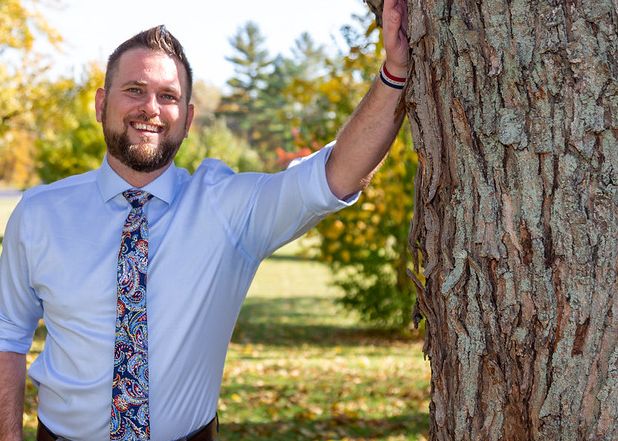
As for a public safety tax, he said municipal fire and police departments have been sounding the alarm. “‘If you guys don’t take action we’re struggling,’” Bozak said the council’s been told. He’s not sure a specific PST versus just raising the local income tax (LIT) is the better option. “If we raise the LIT is it even legal to earmark some of it for public safety?” he wonders.
“In a perfect world, if I had a choice, I would love to see us have our own ambulance service, but again, I don’t know what that entails,” Bozak added, conceding that would be under the purview of the commissioners.
While he doesn’t want to make increased draws on the interest of the foundation money a common practice, Bozak feels it was a benefit to put off raising taxes for a year and also pointed out that the foundation used to draw 5% before adopting its smoothing approach. He felt it was appropriate to use it for raises.
“The commissioners had changed their (health) insurance, moving everybody to a high deductible plan,” Bozak said. “There’s this push down on everyone.”
His ultimate goal is to invest in the community, in its roads and public safety, while keeping taxes low. “I give my phone number out there so people can reach out and talk to me,” Bozak said. “It doesn’t matter if you’re a D or an R. I work very well with both parties.”
Council President Mike Brickner, also a Republican seeking his second term, said he would stop at this one if elected and would support term limits for the county council. It’s very important to him that the council is transparent in spending taxpayer dollars.

He cites stormwater, the ambulance service contract, $1 million owed to the Cumulative Bridge Fund, and the roads as areas of concern for 2025. “We’re very behind on our road paving,” he said, adding, “Some areas have been struggling for years with flooding.”
Brickner said his colleagues are leaving out a crucial tidbit when they praise the county for having the lowest LIT, “but our property tax is the highest in the state.” He’s been meeting with the auditor and county attorney weekly and said the consensus is “the general fund is not going to be able to sustain the needs.”
While admitting he questioned the possibility of using the foundation principal, after educating himself Brickner says he would prefer not to touch it. “I think that money is in a solid place for the future of our county. If we had to, we know it’s there.”
Regarding a public safety tax, he would like more discussion involving the public and the full council. “We would have to look at different ways to increase a LIT and how that money would be distributed,” Brickner said. “I think it would be important for the cities to receive some PST.”
The success the city of Valparaiso and Center Township have had with their fire territory leads Brickner to the conclusion that one for West Porter Township would be beneficial, “but usually things that are worthwhile are a lot of work. I was (the Valparaiso Police) chief when it was established. Now that it has been established it has been pretty successful.”
Democrat Bob DeRuntz says the county’s ambulance service is “unquestionably” his biggest concern. “On a daily basis, we don’t have enough ambulances on station,” he said. “We often have as few as three and what that results in are really unacceptable response times.”
He hopes the increased interest draw on the foundation money will “stave off having to increase the LIT. The longer you can hold that off the better.”
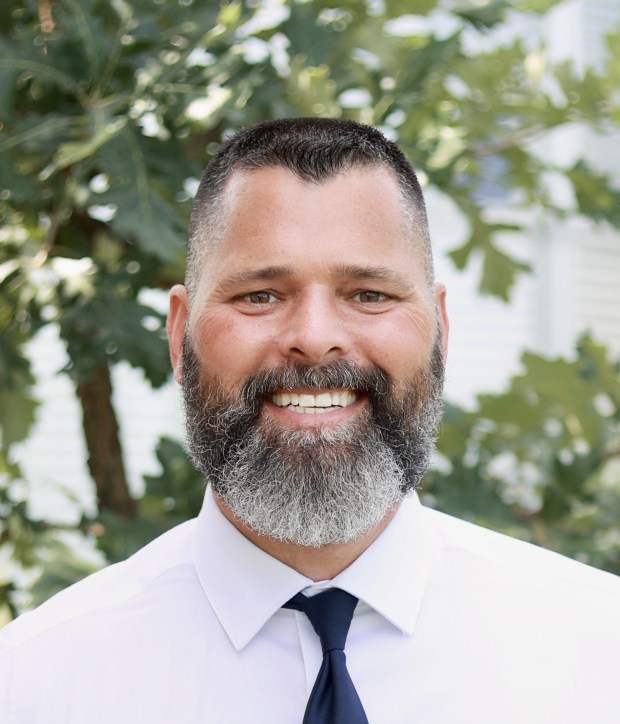
But as for drawing on the principal, DeRuntz said “It would have to be a public health need” to get his support. He would prefer to consider the use of accumulated interest instead.
While public safety has to come first in DeRuntz’s mind, how to fund it is open to research and shared ideas. Perhaps, he suggested, rather than a larger PST, a smaller one could be implemented along with a small increase to LIT?
DeRuntz has visited Lakes of the Four Season three times in the past two months talking with residents to help him understand their needs relative to a WPTFPT. “I believe that it’s needed,” he said. “Their growth, how remote they are. Much of the area out there doesn’t have a formal agreement.”
He said the failed vote last winter to establish a territory devastated people. “They were very, very upset,” DeRuntz said. “They felt that politics was at play when their safety was at risk.
“I’m genuinely running for office because I want to do the hard work of making good decisions for our community,” he said. “Character and decency and how we treat each other matters.”
Democrat Erik Wagner, of Porter, served on the Porter County Council for a year in 2022 following the death of Bob Poparad. Before that, he served six years on the Porter Town Council. He’s currently serving on the Porter Board of Zoning Appeals. “I’m very nervous about how we got to where we are, about how the county is in the red,” he said.
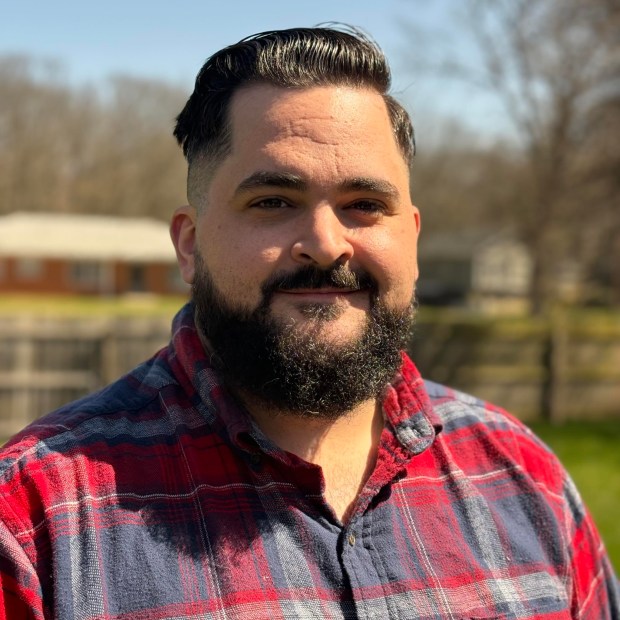
Wagner is passionate about tourism, including ecotourism, and said public safety is his main concern. He’s eager to learn what police and fire chiefs need to better serve the public. Like Bozak, he’s in favor of the county owning its ambulance service and can see that as a rare example of something he’d be comfortable spending the foundation principal on.
“I’m very hesitant about it,” he said of drawing on the principal. “I think if the project was good enough and planned well enough I’d be for it.”
He’s still noncommittal about a PST though. “I’m not opposed,” Wagner said. “If you’re on the county council your job is to have that discussion. I need to hear more information on that because the numbers I have are two years old.”
He said it’s also important to consider the difference between simply raising the LIT and instituting a PST. Many chiefs prefer a PST, Wagner said, because there are only certain line items it can be used for, while officials can say they’ll use LIT for public safety “but when the money’s there, nothing’s holding them to it.”
On the WPTFPT question, Wagner gives a thumbs-up. “From what I hear, the citizens really want it. If they want it, I say go for it.”
Republican Michelle Harris is most concerned about the county’s ability to finance projects committed to by previous administrations. “I don’t think the county has money to do any of it,” she said.
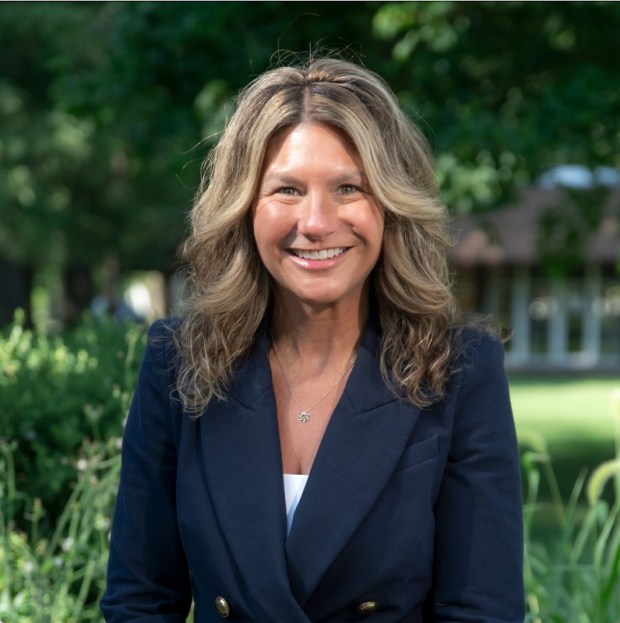
While she’s more than fine drawing on the interest of the foundation money, she’s not a fan of drawing on the principal. “I don’t want to commit principal on recurring expenses,” she said. “And not Willowcreek. I am not OK with that,” she added of the Willowcreek Road extension project that sits in limbo.
Harris said she’s been told that the county is too invested – about $1 million to date – to stop the road project now, but she wonders, “Is the hit worth it? Is the hit better than the expense long-term?”
She finds it strange that the county doesn’t have a strategic plan and wants one developed by the end of 2025 that would compile strategies for one, three, and 10 years out. Whether or not a PST is implemented or the LIT is raised, Harris said the public safety community needs to be able to create such plans as well.
“How can the public safety authorities plan in advance if they don’t know how much money they’re getting,” she asked. “It takes three years to get a fire engine.”
Harris sits on the Fire Territory Board for the city of Valparaiso. She said the territory has been so successful for Valparaiso and Center Township that they are planning to build a new station with or without a PST. “They have the funds. They are solvent,” she said. “If that is mutually beneficial to the departments and the people of Porter County, I think that’s something that has to be considered.”
Shelley Jones is a freelance reporter for the Post-Tribune.


